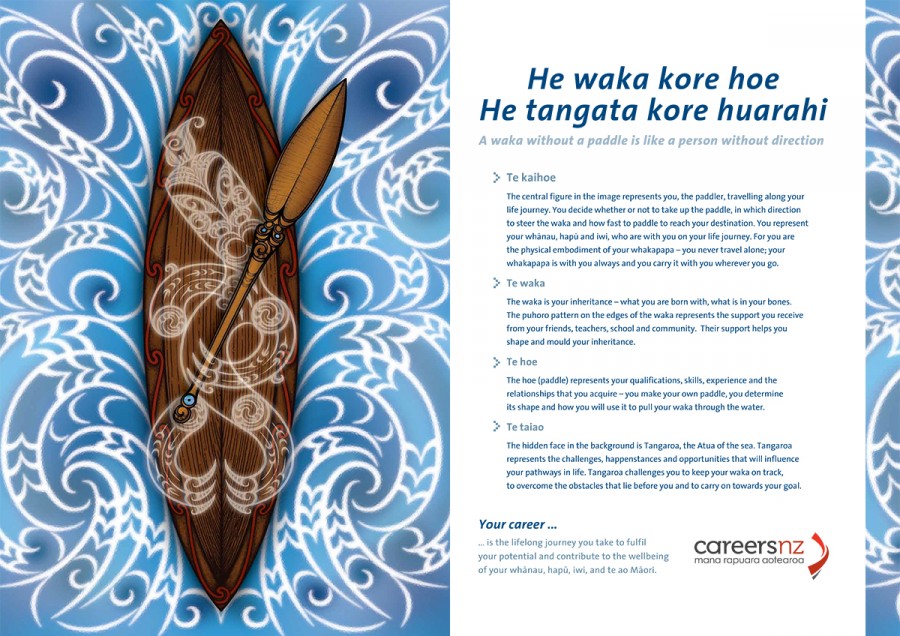Waka poster - English
A waka without a paddle is like a person without direction.
He waka kore hoe, He tangata kore huarahi
This image of a waka presents a model of career development for students and whānau. Here are some ideas about what the different parts of the image could represent. You may have other ideas about what the imagery represents for you – and that’s great. The main thing is that this image provides you with a way of looking at careers.
Te kaihoe
The central figure in the image represents you, the paddler, travelling along your life journey. You decide whether or not to take up the paddle, in which direction to steer the waka and how fast to paddle to reach your destination. You represent your whānau, hapū and iwi who are with you on your life journey. For you are the physical embodiment of your whakapapa – you never travel alone; your whakapapa is with you always and you carry it with you wherever you go.
Te waka
The waka is your inheritance – what you are born with, what is in your bones. The puhoro pattern on the edges of the waka represents the support you receive from your friends, teachers, school and community. Their support helps you shape and mould your inheritance.
Te hoe
The hoe (paddle) represents your qualifications, skills, experience and the relationships that you acquire – you make your own paddle, you determine its shape and how you will use it to pull your waka through the water.
Te taiao
The hidden face in the background is Tangaroa, the Atua of the sea. Tangaroa represents the challenges, happenstances and opportunities that will influence your pathways in life. Tangaroa challenges you to keep your waka on track, to overcome the obstacles that lie before you and to carry on towards your goal.
Your career …
… is the lifelong journey you take to fulfil your potential and contribute to the wellbeing of your whānau, hapū, iwi, and te ao Māori.
Updated 27 Feb 2020
